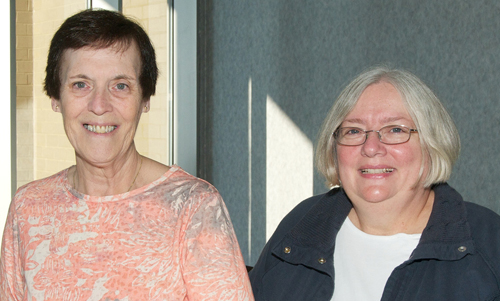Home-based care helps patients with depression or anxiety


Elderly patients with depression and anxiety are much less likely to require hospitalization or to engage in disruptive behavior when they receive home-based behavioral health care, according to a pioneering program by the Christiana Care Visiting Nurse Association.
That is, in part, because a trained psychiatric nurse can see things in the home that aren’t apparent in the doctor’s office or a brief hospital stay, says Gale Bucher, director of Quality and Risk Management.
Did the patient get dressed today? Did she bathe or comb her hair? Is she eating properly?
“By identifying problems and intervening sooner, we can help to keep these patients from going in and out of the Emergency Department,” she says.
Connie McKelvey, a psychiatric nurse with 35 years’ experience, was the first nurse in the VNA behavioral health program. She is trained in cognitive behavioral therapy and serves as a trusted resource for patients and their loved ones. She ensures that patients are taking their medications properly.
“I’m able to sit and talk with family members, who can tell me about the changes they have seen in the patient,” she says. “I also teach patients and their families about the process of their illness.”
Depression and anxiety are common underlying problems in patients who have health issues such as congestive heart failure, multiple sclerosis or chronic obstructive pulmonary disorder (COPD). The program helps people with Alzheimer’s and dementia.
More than 20 percent of home-care patients have behavioral symptoms, Bucher notes. Those issues can make it difficult for patients to follow a treatment regime, delaying healing progress and ultimately increasing health care costs and human suffering.
Launched in April 2011, the VNA initiative is based on a successful model developed by the Visiting Nurse Society of New York. A team from the Christiana Care VNA made a field trip to New York and came away convinced that home-based behavioral health care would help patients in Delaware, too.
A year later, patients’ outcomes show significant improvement. Of the patients who had been experiencing anxiety, 17 percent improved; 78 percent were stabilized. Of the patients who displayed disruptive behaviors, 38 percent showed improvement.
Not all the patients had post-testing. Factoring in anecdotal reporting, Bucher says that number of people who actually experienced improvement because of the program is probably higher than the data reflects.
“The patients are functioning better,” says Rhonda Combs, chief operating officer, VNA. “They are more able to be independent.”
When patients have been in crisis situations and require another level of care, the program facilitates their admission to the hospital.
Because of the program’s success, the VNA has brought on board two more part-time nurses.
“There is a tremendous need for these types of services, which we think will continue to grow in the future,” Combs says.